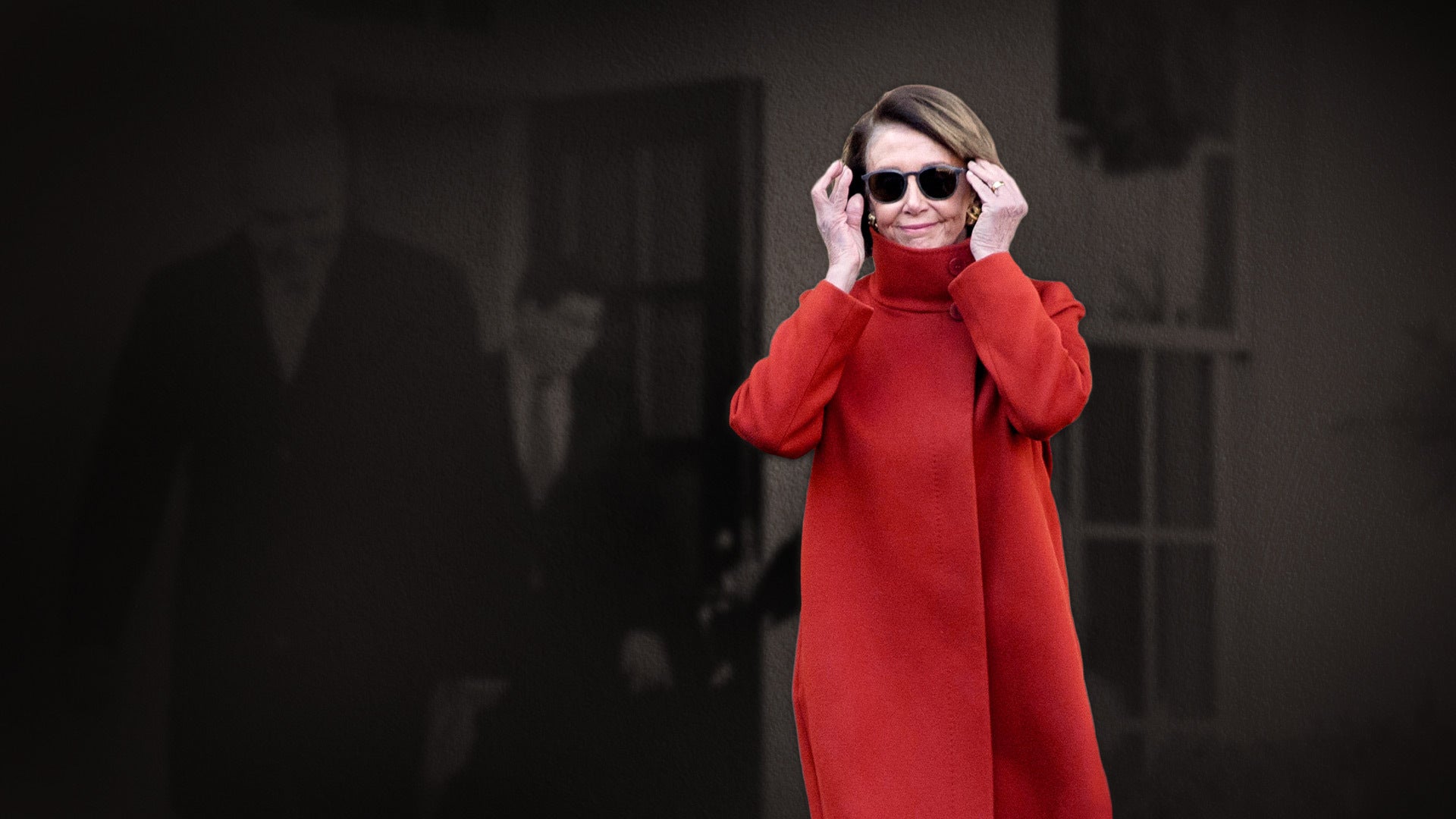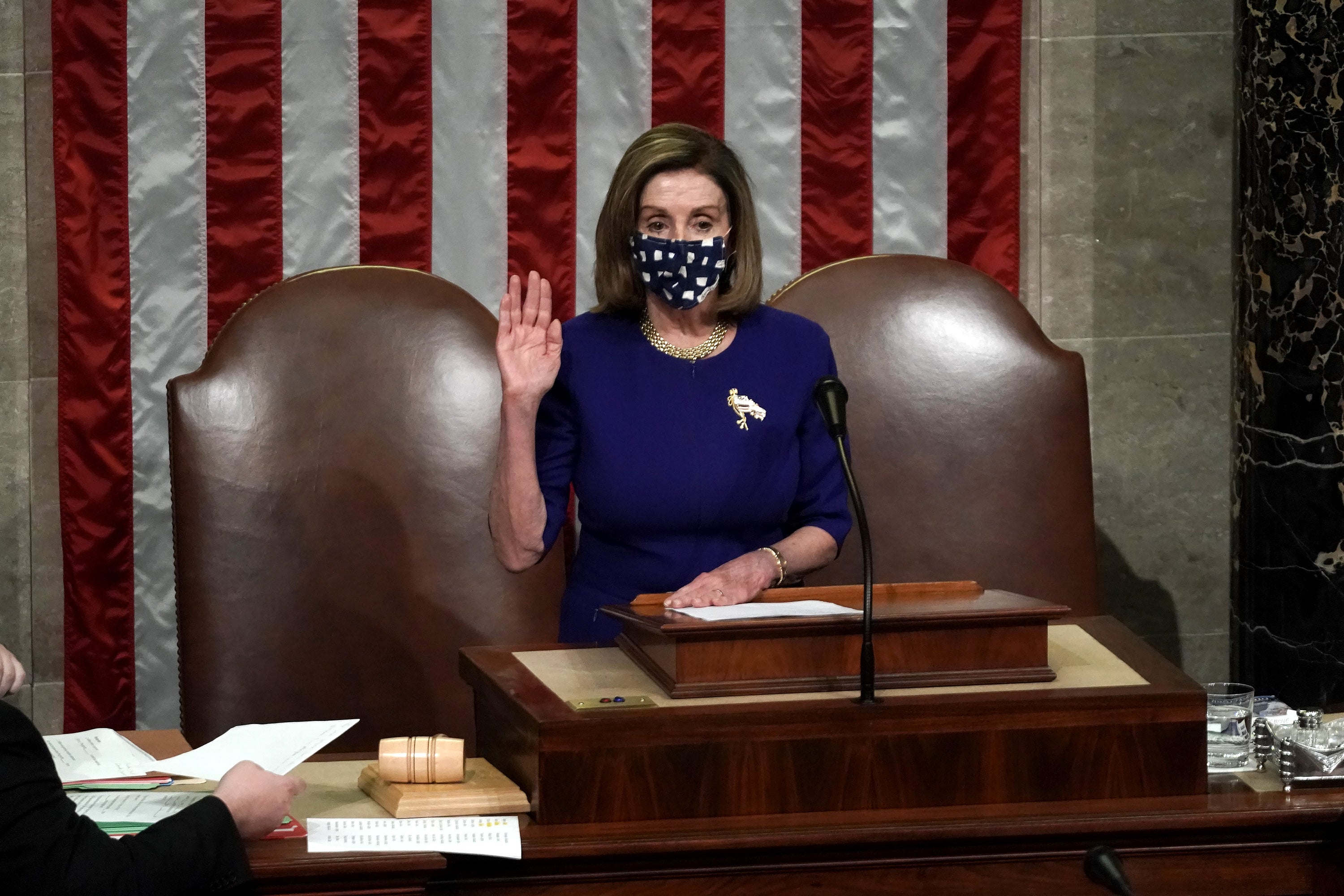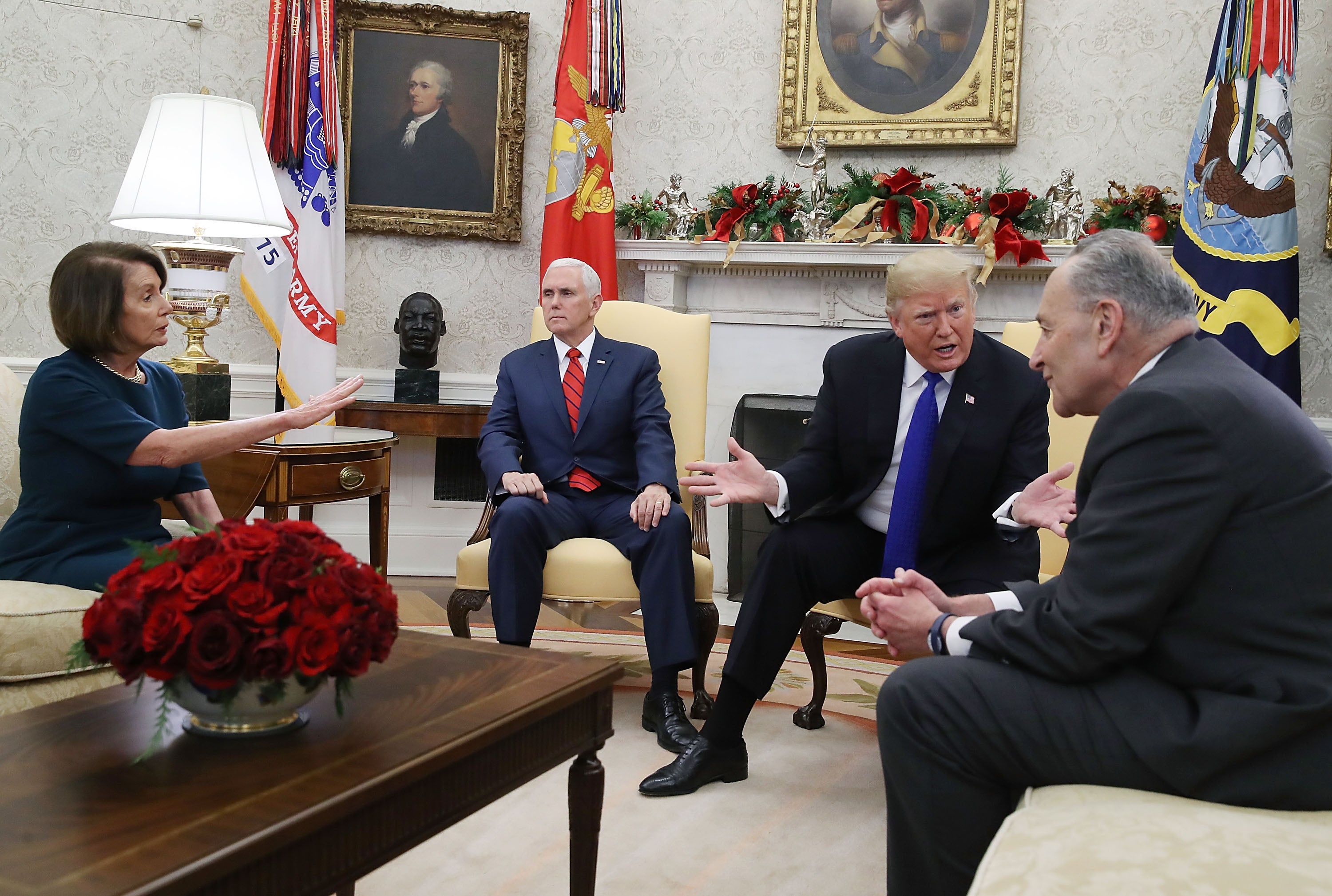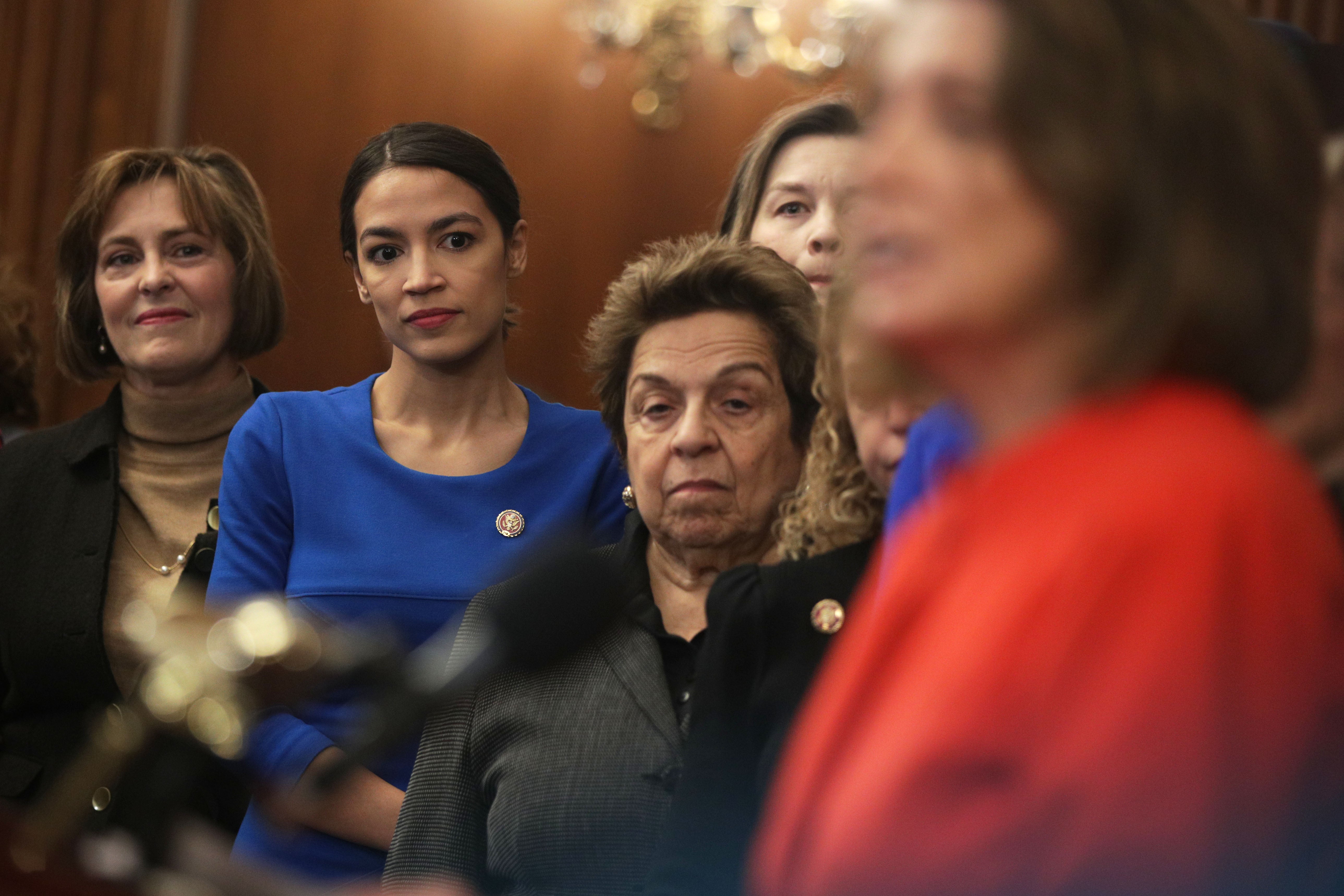How Nancy Pelosi succeeded in a bitterly divided era
She was born into a family accustomed to seeking power, holding power and using power. It’s in her bones. The director of a new film about Pelosi tells Andrew Buncombe that few politicians are so at ease at the centre of a storm


There is a segment of a new film about Nancy Pelosi that is scary as hell. It comes right at the beginning, when protesters, or rioters, or insurrectionists, or whatever term will later be used to describe them, storm the US Capitol on the afternoon of 6 January 2021. The footage, timestamped 2.41pm and taken from a security camera above a corridor, shows members of staff hurrying to safety. They enter an office, where the door is quickly closed, one woman flashing a rapid look over her shoulder.
At this moment, the rioters are not yet in the picture, but we can hear their voices shouting out.
“Nancy.” “Nancy.” “Where you at, Nancy?” “Tell Nancy we’re looking for her.”
Shortly afterwards, we see protesters banging and pushing on the office door, which seems set to buckle open under their force. Scores storm into the office Pelosi occupies as speaker of the house, filming themselves, someone tapping the carved nameplate with a stick.
“Where are you, bitch?”
We see Pelosi later that same day, shaken to the core but determined to press ahead with the vote to certify the electoral college results that marked the victory of Joe Biden. “Today, a shameful assault was made on our democracy. To those who strove to deter us from our responsibility: you have failed,” she says as she reopens the joint session. “To those who engaged in the gleeful desecration of our temple of democracy: justice will be done.”
Given that the documentary, Pelosi’s Power, directed by Michael Kirk, places at its core the nature of the raw power wielded by America’s first female speaker, those sequences, in which elected politicians and their staff run for their lives as chanting crowds storm the Capitol, can feel utterly jarring. In those moments, it feels like the mob, not the elected officials, are in control of the nation’s destiny.
Why did Kirk start the film with those scenes? “So many people we talked to said that if you wanted to know about who Pelosi had become, it was manifest in her actions on that day,” he says. “Not calling attention to herself as much as seizing power; this feeling that the place she’s in charge of, the House of Representatives and the Congress, had been invaded and defiled.”
He adds: “And from almost the very beginning, exercising power in a really manifest way. Everybody I talked to said: ‘You have to understand, this woman is the most powerful person I’ve ever been around.’”

Pelosi has just turned 82 years old. She has five children and nine grandchildren. She was first elected to Congress in 1987, when there were just 23 women in the lower chamber. She went on to make history, first when she became the first woman to lead a major party in the house in 2003, and second in 2006, when she became the first female speaker.
Several books have been written about her, along with endless articles and profiles, and she has been impersonated by more than one actor on Saturday Night Live. And yet, Kirk believes his documentary, which streams on PBS, is the first film devoted to her and her career: a sharp-elbowed female politician, with four-inch Manolo Blahnik heels, in a town full of spiky types.
He says Pelosi’s team put this down to the fact that she’s a woman, but he’s not convinced. There are films about other female leaders: Indira Gandhi, Margaret Thatcher, Angela Merkel. “I don’t know what it was. And it was hard because she’s tough, you know? They were not exactly accommodating, in terms of letting us do things we wanted to do,” he says.
Among those in the know, she is considered to have been essential to all of the Democrats’ major legislative victories over the past two decades or so
Kirk’s film may be all the more noteworthy because the issue at its heart – Pelosi’s power and the way she wields it – may finally be coming to an end. With just a handful of exceptions in modern politics, the party of a newly elected president can expect to lose one or both of the chambers in its first midterm elections.
Joe Biden is also facing a lot of exceptional circumstances – the pandemic, Russia’s invasion of Ukraine – but so far these factors do not appear to be rallying support to his side, as the 9/11 attacks did for George W Bush in the 2002 midterms. Rather, these issues, along with the attendant mounting inflation, seem to be working against him. Biden’s approval rating stands at just 42 per cent – or less, depending on which poll you look at.
So even if Pelosi is selected to serve her 19th term in Congress – she currently represents California’s 12th congressional district – would she wish to serve as minority leader, fighting it out with the likes of Kevin McCarthy? And if the Democrats do lose the house, the pressure on her to step aside to allow a new generation of leadership would likely be impossible to resist.
As such, the coming weeks and months – as the Biden administration seeks to pass another major reconstruction bill, combat inflation, and prevent the conflict in Ukraine from spreading any further – could be a critical last opportunity for Pelosi to use her leverage.

Nancy Pelosi cuts a singular figure in the world in which she operates. A practising Catholic, who had five children within six years and has been an outspoken champion of reproductive choice, Pelosi is admired by her colleagues for her tactical skills and commitment to the fight, and for promoting progressive causes.
Among those in the know, she is considered to have been essential to all of the Democrats’ major legislative victories over the past two decades or so. Rahm Emanuel, who was backed by Pelosi when he helped her to regain the house in 2006, and who would serve as Barack Obama’s first chief of staff, tells Kirk that the former president would acknowledge that she was essential to the passage of the Obamacare health reforms.
One of her biographers, Molly Ball, a national political correspondent for Time magazine and the author of Pelosi, wrote in a 2018 profile: “It is not in Pelosi’s nature to cower or grovel. She will be who she is – liberal, privileged, unpopular – and let the chips fall where they may.”
Republicans also admire her toughness, and enjoy the fact that campaigns which feature her face will routinely secure many millions of dollars more than those featuring any other alleged Democratic bogeyman
One senses that Pelosi is also somewhat feared, with a reputation for keeping files on every member in the house, and for knowing how to use that information. One of Kirk’s interviewees, Eugene Robinson of The Washington Post, says: “Nancy Pelosi has never been accused of bringing a knife to a gunfight.”
Republicans also admire her toughness, and enjoy the fact that campaigns which feature her face – summing up in the eyes of her detractors the essence of liberal San Francisco-style excess – will routinely secure many millions of dollars more than those featuring any other alleged Democratic bogeyman.
Pelosi is also the Democrats’ largest fundraiser. Punchbowl News reported recently that she had raised $45.7m (£35m) for the Democratic Party in the first quarter of this year – the largest fundraising haul on record. Pelosi’s staff say she has raked in $1.16bn for the party since joining its leadership as house whip in 2002. That would make her the most successful non-presidential fundraiser in history.
Former Republican congressman Eric Cantor, who served as minority leader for several years of Pelosi’s speakership, also says she was a hard-edged operator who always put her own party first. One imagines that Cantor might intend this as an attack on Pelosi, but it comes across as at least somewhat admiring.
“She’s a no-holds-barred politician that was about partisan warfare 100 per cent of the time,” he tells Kirk.
What the film does not contain is gushing, either about Pelosi or by Pelosi. Kirk says that one of the favourite parts of the film is a clip showing Pelosi being interviewed by Diane Sawyer on ABC News in 2010 after losing control of the house, and with it the speakership, in the midterms. Saywer repeatedly asks Pelosi whether she has any regrets, what she might have done differently, and how she might be feeling about some of those calling for her to give up her job.

“The president said he was sad. It was sad. And for you... sad? bruising?” asks Sawyer.
Pelosi responds: “Well, it’s sad in terms of my colleagues who won’t be coming back. For me, I’m a professional.”
Kirk says the moment when Sawyer tries to get Pelosi “to cry” is television “gold”. “A television reporter tries to get Nancy Pelosi to be a human being, and she’s determined not to be. She’s not going to give her that. That’s a great moment.”
Nancy Patricia D’Alesandro was born into a well-known Italian American family in Baltimore on 26 March 1940. She was the only girl, and the youngest of seven children. Her father was a congressman from Maryland, and would later serve as Baltimore’s mayor. She famously attended John F Kennedy’s inaugural address when he was sworn in on 20 January 1961.
At at an early age, her father, Thomas D’Alesandro Jr, would take his daughter on the campaign trail, showing her the importance of developing personal relationships and knowing as much as possible about those whose votes he would count on. He taught her to always help someone if she could.
She has to be in a room where knuckles are being spanked and knees are being broken, or whatever it is she does. She grew up around it
Yet, he also kept a “favour file” – she would later look after it – in which they noted down what had been asked of them. It was a habit she would adopt herself after she made it into Congress.
Kirk says: “She kept the favour file for her dad. And as she said to David Axelrod, chief strategist for Barack Obama’s presidential campaigns, she learnt to count [votes] in a ward; to know who lives where and how many votes you’re going to get; which part of the town votes for you, and know you’ve got to go there and watch them.”
He says she understood that they had to go and watch the polling and notice if people were not turning out. That way, they could send people out to those parts of the city to encourage people to get out and vote.
“I mean, that’s Nancy Pelosi, and that’s the way she runs the house,” Kirk adds.
Kirk and others say it was this upbringing that not only opened Pelosi’s eyes to politics, but made her at ease with having and exercising political power. Another of her biographers, Susan Page, Washington DC bureau chief for USA Today and author of Madam Speaker: Nancy Pelosi and the Lessons of Power, tells Kirk she has never known anyone operate in such a way.
“Nancy Pelosi is more comfortable with power than any other person I’ve ever covered,” Page says. “She grew up in a household where power was like electricity and running water. From the day she was born, she was in a family that was accustomed to seeking power, holding power, and using power. And it’s in her bones.”

Kirk believes it was this early infection with politics that would persuade her to push for her own political career, after she had raised five children. Her husband, Paul Pelosi, was a San Francisco real-estate millionaire.
“She doesn’t need the job, and she doesn’t need the money, but where she grew up, and that feeling of power... you got to have it,” says Kirk. “She has to be in a room where knuckles are being spanked and knees are being broken, or whatever it is she does. She grew up around it.”
Not everybody is an admirer of Pelosi. At least, not all of the time. In 2016, after the Democrats not only lost the White House but failed to win either of the houses of Congress – the first time Republicans had held all three of those elements since 2004 – pressure mounted on Pelosi to step aside. Congressman Tim Ryan, who in 2016 had challenged her for the speakership, said the party was unlikely to win back control with her in charge. In the spring of 2017, when Jon Ossoff lost a house race in Georgia that Democrats across the nation had poured millions of dollars into, hoping it would be a cathartic victory after their disappointment the previous year, that feeling only grew.
“We’ve got a lot of energy in our base, which is very exciting for a lot of us to see that on the ground, but you’ve got to beat the Republicans, and you’ve got to carry this very toxic Democratic brand on your back, too. That’s a tough thing to ask a candidate running for congress,” Ryan told MSNBC, saying that Pelosi was being used as a weapon to damage Democratic candidates in red states.
Even after the Democrats retook the house in November 2018, largely as a result of following a playbook controlled by Pelosi, it appeared that she was going to be challenged again for the speaker’s gavel. Her position was not helped by the fact that her senior deputies, Steny Hoyer and Jim Clyburn, were of a similar age and outlook.

The Washington Post noticed that Pelosi was not giving her opponents much oxygen. “Pelosi has largely dismissed the challenge and has expressed complete confidence that she will return as speaker, unwilling to give any credibility to her opponents,” said one report. As it was, she won the nomination for speaker in late November 2018, with 203 votes to 32.
Kirk’s film also addresses several spats with new members of the party. Pelosi clashed with four women of colour: Alexandria Ocasio-Cortez (known widely as AOC), Rashida Tlaib, Ilhan Omar and Alyssa Pressley. “The Squad”, as they quickly become known, were outspoken progressives, had a huge social media audience, and were keen to shake things up.
After AOC stunned the political establishment in the summer of 2018 by defeating Democratic incumbent Joe Crowley in the primary for the safe seat of New York’s 14th congressional district, she initially declined to say whether she would support Pelosi for speaker. “I think it’s far too early to make those kinds of commitments right now,” she told CNN. Asked to respond to Pelosi’s seemingly dismissive comment about AOC’s defeat of Crowley, the 4th ranking Democrat in the house, as just “one district”, she said: “I think we’re in the middle of a movement in this country – I feel this movement – but that movement is going to happen from the bottom up. That movement is going to come from voters.”
It is not in Pelosi’s nature to cower or grovel. She will be who she is – liberal, privileged, unpopular – and let the chips fall where they may
As it was, AOC would eventually support Pelosi in the leadership vote. “So long as Leader Pelosi remains the most progressive candidate for speaker, she can count on my support,” she tweeted. “I agree that our party should, and must, evolve our leadership. But changed leadership should reflect an actual, evolved mission.”
“The nature of power has changed since Pelosi got there. You could say AOC’s Instagram followers are the kind of power that Pelosi doesn’t recognise,” says Kirk.
“She says that’s influence, not power. Power is votes when you need them. Well, I think the power of social media in American politics has started to be really demonstrable, and it may be that Instagram and TikTok are a kind of power that someone aged 82 not only can’t recognise, but never would do.”
Does Kirk sense that things have been patched up between Pelosi and those young progressives? He says they have made up publicly, even if their fundamental approaches may be different.

“One of the things that cooled the Squad was when they finally started to deal with Nancy Pelosi, and found out that she was a super progressive from San Francisco who had been at the forefront of the fight against Aids, and almost all of the social legislation that the Squad and others would stand up for and give a standing ovation to,” he says.
“She’s in a different job now, but at the time she was as progressive as they were.”
Even if the Democrats win in November, there will be intense pressure on Pelosi to step aside as leader. An excerpt from a forthcoming book by two New York Times reporters, Jonathan Martin and Alexander Burns, quotes her as saying she resented having to “grovel” for another term as house speaker after the 2018 midterms.
Her 2019 election to serve as speaker again “seemed like a joyless one”, according to the book, This Will Not Pass: Trump, Biden, and the Battle for America’s Future, which is due to be published this spring.
“You couldn’t pay me a billion dollars to run for speaker again,” she is reported to have said that day. But while there are names mentioned in the media as possible successors, Kirk says that when he speaks to Democrats, they don’t appear to have a plan. “That’s the kind of thing you ask people [when] you’re just hanging around with them and say, so who’s going to take over when Nancy is gone? And everybody kind of rolls their eyes and says ‘Yet to be determined,’” he says.
Does he thinks Pelosi would wish to stay on as leader?
“One of the surest bets is you’re going to get at least two more years of Republican leadership in the house from Kevin McCarthy. And that, from Pelosi’s perspective, is the very worst news there is, so I think she’d probably love to retain the leadership of the Democrats because she could be a thorn in his side,” he says.
“And why would you want to be just a member of the house and not in the leadership, especially when you can promise to ‘help raise a successor, let’s get one of the young firebrands in here, and I’ll start training him or her’.”




Join our commenting forum
Join thought-provoking conversations, follow other Independent readers and see their replies
Comments